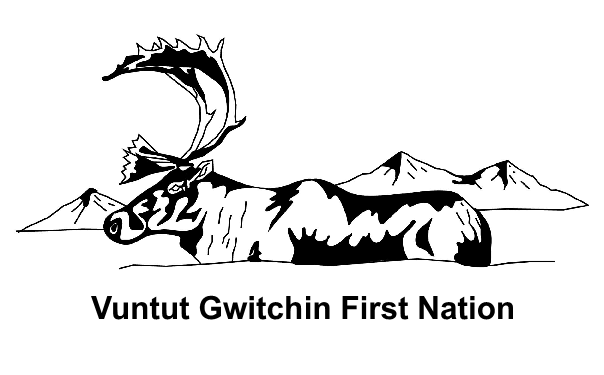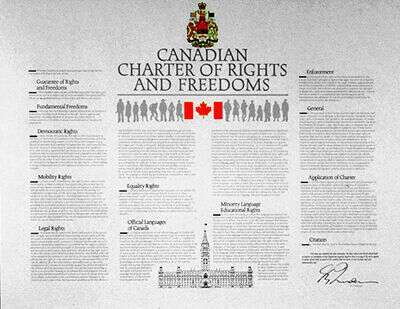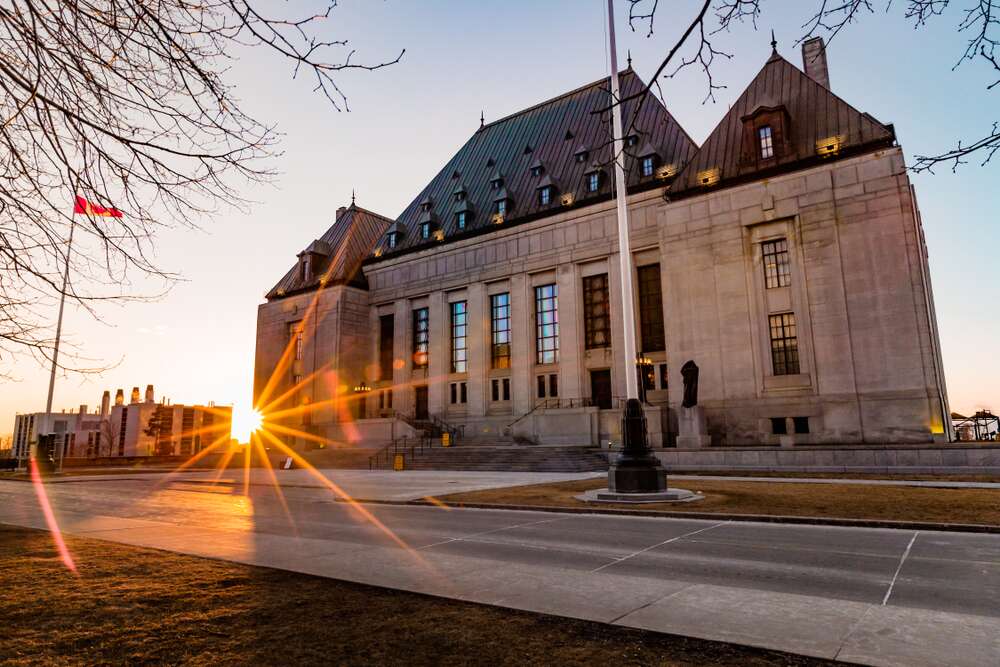The revitalization of Indigenous’ Peoples inherent laws and governance systems is a fundamental component of decolonization. However, the extent to which Canadian courts and governments are willing to recognize and respect Indigenous governments and law-making authority remains an open question.
The Supreme Court of Canada will soon address this issue directly in Dickson v. Vuntut Gwitchin First Nation. On the appeal, the Court will be asked to confirm the source of Indigenous law-making authority when exercised in the context of a modern treaty and self-government agreement. The appeal will also provide an important opportunity for the Court to clarify the relationship between the laws and decisions of Indigenous governments and the rights guaranteed to individuals under the Canadian Charter of Rights and Freedoms.
Background
The Vuntut Gwitchin First Nation (VGFN) is a part of the Gwitchin Nation with territory in the far north of Yukon. Its main community and traditional seat of government is located in the village of Old Crow, approximately 800 km north of Whitehorse.
VGFN governs itself based on the Vuntut Gwitchin First Nation Constitution, which it enacted in accordance with a Final Agreement and self-government agreement negotiated between VGFN, Canada and Yukon in the early 1990s. The Final Agreement is a land claim agreement and treaty within the meaning of section 35 of the Constitution Act, 1982.
The VGFN Constitution provides that it is the “supreme law” of VGFN. Its objective is to promote, enhance and protect VGFN’s history, culture, values, traditions and rights. As part of this objective, the Constitution sets out requirements for the selection of VGFN leadership, including that VGFN councillors either reside in Old Crow or relocate there within 14 days of being elected.

Photo credit: Xasartha (License)
The Dickson Litigation
Cindy Dickson, a VGFN citizen residing in Whitehorse, challenged the residency requirement in the VGFN Constitution on the basis that it infringed her equality rights under section 15 of the Charter. In response, VGFN argued the Charter did not reflect its legal and political traditions, and that its power to determine its own leadership selection processes existed by virtue of its inherent law-making authority, not federal or territorial legislation.
At trial, the Yukon Supreme Court held that the Charter applied to the VGFN Constitution, and that the requirement that councillors relocate to Old Crow “within 14 days” of being elected impaired Ms. Dickson’s equality rights.
On appeal, the Yukon Court of Appeal confirmed that the Charter applied to the residency requirement. However, the Court held that even if the residency requirement did breach Ms. Dickson’s equality rights, section 25 of the Charter, which states that the Charter shall not be construed so as to limit Aboriginal or Treaty rights under section 35 of the Constitution Act, 1982, would apply as a ‘shield’ in order to allow VGFN to exercise its self-government powers.

Photo credit: Richard Foot (License)
Why It’s Important
Canadian courts have long affirmed that the assertion of Crown sovereignty and the division of federal and provincial powers pursuant to the Constitution Act, 1867 did not extinguish the continued existence of Indigenous powers of self-government, and that this right exists and is protected today by section 35 of the Constitution Act, 1982. However, the Court of Appeal’s decision in Dickson raises critical questions about the source of Indigenous law-making authority where such authority is exercised in the context of a modern treaty or self-government agreement.
In the upcoming appeal in Dickson, the Supreme Court will be asked to confirm that Indigenous law-making authority, including when exercised as part of a modern treaty, is both rooted in Indigenous Peoples’ own inherent laws and practices, and protected under the Constitution Act, 1982.
The Court will further be asked to clarify the interplay between Indigenous laws and the Charter, and in particular, whether the personal rights guaranteed under the Charter can be invoked so as to undermine the decision-making authority of Indigenous governments. The resolution of these issues could provide significant support for the revitalization and implementation of Indigenous laws and governance processes.

Looking Ahead
At its heart, the Dickson appeal is about whether Canadian courts and governments are prepared to make meaningful space for the exercise of Indigenous legal orders, even when doing so runs counter to broadly accepted Canadian laws and values.
The complex and uncomfortable issues in Dickson flow directly from the process of colonization and the Canadian state’s longstanding suppression of Indigenous law. These issues must be addressed. Ultimately, their resolution cannot be predicated on the Court’s willingness to unilaterally apply the Charter to override Indigenous law-making authority where personal rights and freedoms are at issue. Rather, it will require trusting that Indigenous governments will take the steps necessary to safeguard the rights of their citizens, as they have always done, based on their own laws and processes.
* This essay is a modified version of Kate Gunn’s article “Towards a Renewed Relationship: Modern Treaties & the Recognition of Indigenous Law-Making Authority” featured in Constitutional Forum's 2022 special edition on the Dickson v. Vuntut Gwitchin case, available here.
*You can watch the Supreme Court of Canada hearing webcast here.
First Peoples Law LLP is a law firm dedicated to defending and advancing the rights of Indigenous Peoples. We work exclusively with Indigenous Peoples to defend their inherent and constitutionally protected title, rights and Treaty rights, uphold their Indigenous laws and governance and ensure economic prosperity for their current and future generations.
Kate Gunn is partner at First Peoples Law LLP. Kate completed her Master's of Law at the University of British Columbia. Her most recent academic essay, "Agreeing to Share: Treaty 3, History & the Courts," was published in the UBC Law Review.
Connect with Kate on LinkedIn and Twitter
For more First Peoples Law analysis, visit our blog
Sign up for our First Peoples Law Report
